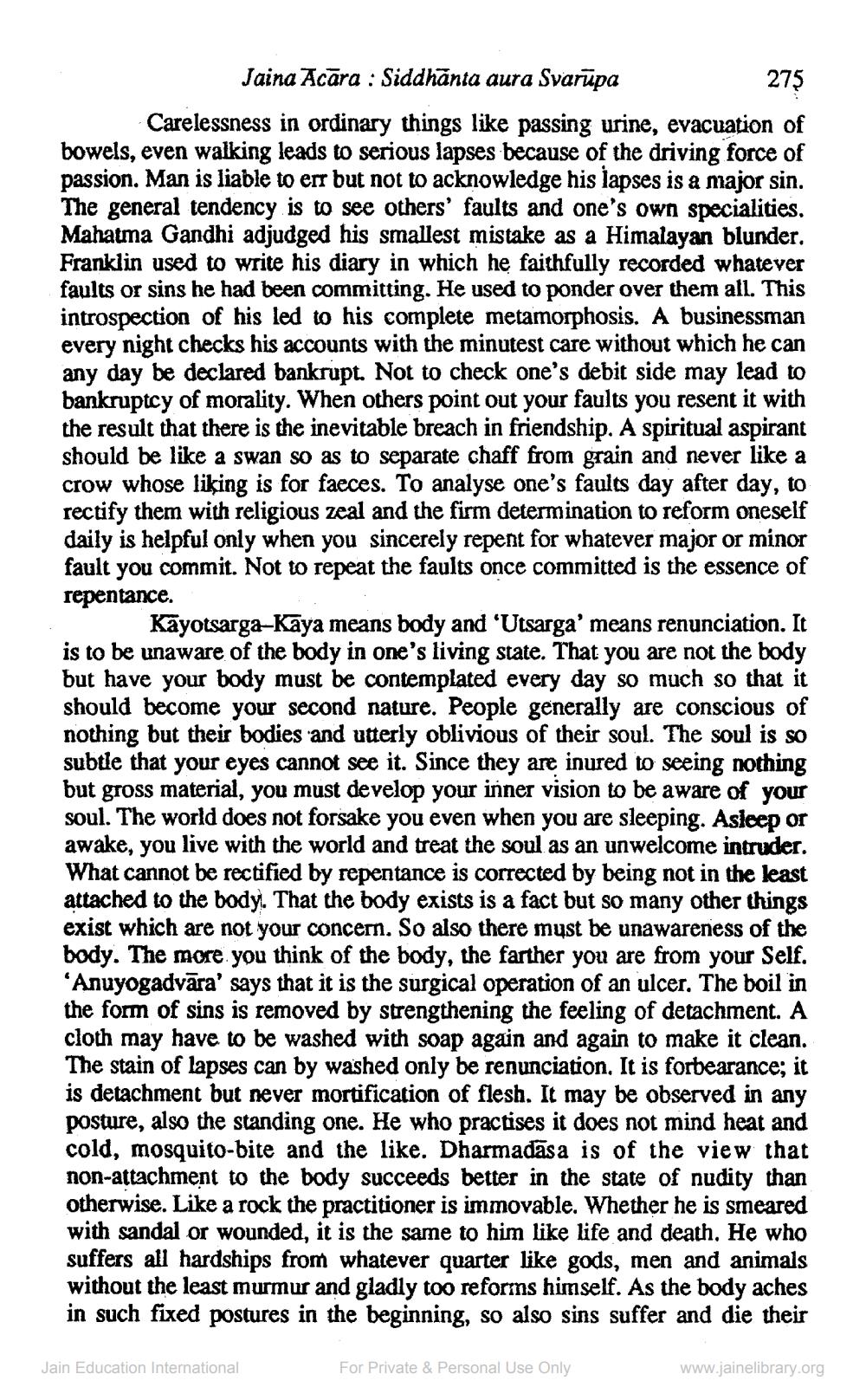________________
Jaina Acāra : Siddhanta aura Svarūpa
275 Carelessness in ordinary things like passing urine, evacuation of bowels, even walking leads to serious lapses because of the driving force of passion. Man is liable to ert but not to acknowledge his lapses is a major sin. The general tendency is to see others' faults and one's own specialities. Mahatma Gandhi adjudged his smallest mistake as a Himalayan blunder. Franklin used to write his diary in which he faithfully recorded whatever faults or sins he had been committing. He used to ponder over them all. This introspection of his led to his complete metamorphosis. A businessman every night checks his accounts with the minutest care without which he can any day be declared bankrupt. Not to check one's debit side may lead to bankruptcy of morality. When others point out your faults you resent it with the result that there is the inevitable breach in friendship. A spiritual aspirant should be like a swan so as to separate chaff from grain and never like a crow whose liking is for faeces. To analyse one's faults day after day, to rectify them with religious zeal and the firm determination to reform oneself daily is helpful only when you sincerely repent for whatever major or minor fault you commit. Not to repeat the faults once committed is the essence of repentance.
Kāyotsarga-Kaya means body and 'Utsarga' means renunciation. It is to be unaware of the body in one's living state. That you are not the body but have your body must be contemplated every day so much so that it should become your second nature. People generally are conscious of nothing but their bodies and utterly oblivious of their soul. The soul is so subtle that your eyes cannot see it. Since they are inured to seeing nothing but gross material, you must develop your inner vision to be aware of your soul. The world does not forsake you even when you are sleeping. Asleep or awake, you live with the world and treat the soul as an unwelcome intruder. What cannot be rectified by repentance is corrected by being not in the least attached to the body. That the body exists is a fact but so many other things exist which are not your concern. So also there must be unawareness of the body. The more you think of the body, the farther you are from your Self. 'Anuyogadvāra' says that it is the surgical operation of an ulcer. The boil in the form of sins is removed by strengthening the feeling of detachment. A cloth may have to be washed with soap again and again to make it clean. The stain of lapses can by washed only be renunciation. It is forbearance; it is detachment but never mortification of flesh. It may be observed in any posture, also the standing one. He who practises it does not mind heat and cold, mosquito-bite and the like. Dharmadása is of the view that non-attachment to the body succeeds better in the state of nudity than otherwise. Like a rock the practitioner is immovable. Whether he is smeared with sandal or wounded, it is the same to him like life and death. He who suffers all hardships from whatever quarter like gods, men and animals without the least murmur and gladly too reforms himself. As the body aches in such fixed postures in the beginning, so also sins suffer and die their
Jain Education International
For Private & Personal Use Only
www.jainelibrary.org




